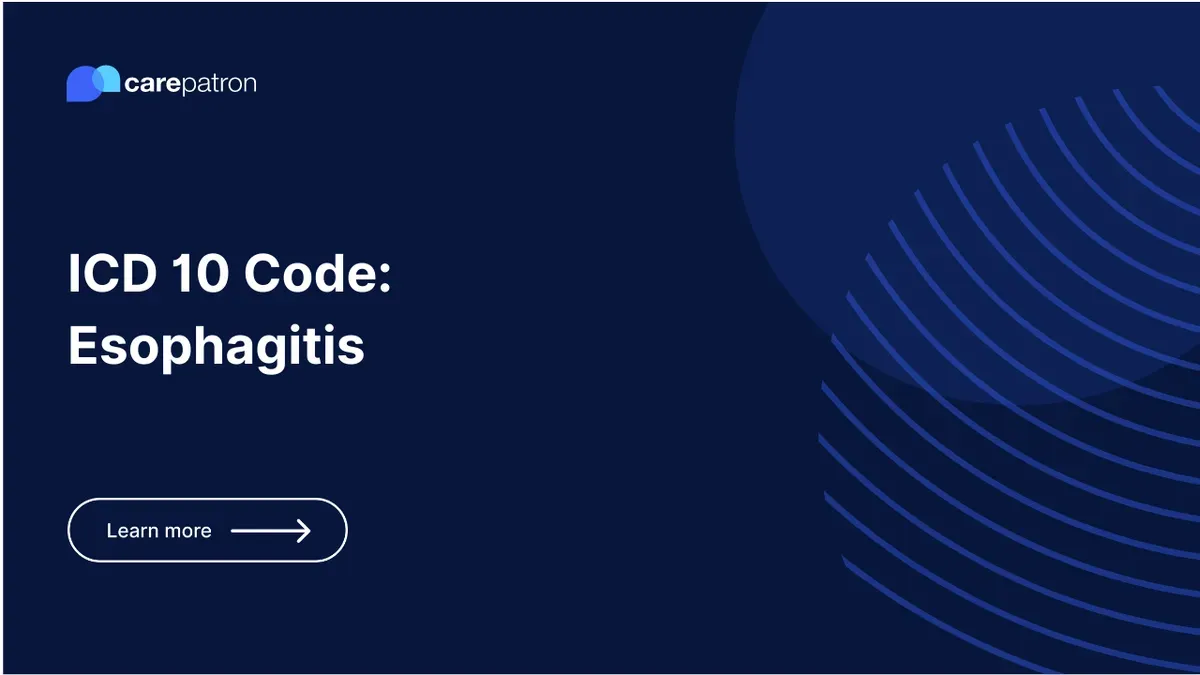
Esophagitis ICD-10-CM Codes
Explore ICD-10-CM codes for esophagitis in 2023. Discover commonly used codes, clinical descriptions, billable codes, synonyms, and more.
Use Code
EHR and practice management software
Get started for free
*No credit card required
Free
$0/usd
Unlimited clients
Telehealth
1GB of storage
Client portal text
Automated billing and online payments
